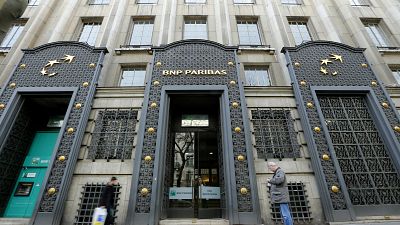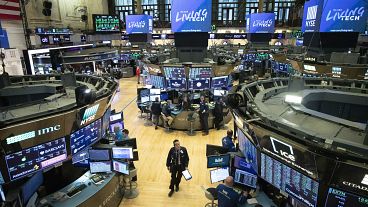The Facebook parent company, Meta Platforms, reported first-quarter earnings that topped market expectations. However, its shares plunged 15% due to weaker-than-expected second-quarter revenue guidance and an increased spending plan for artificial intelligence.
The parent company of Facebook, Meta Platforms, has reported first-quarter earnings that significantly exceeded market expectations. However, shares of the social media giant dropped approximately 15% in after-hours trading due to weaker-than-expected sales revenue guidance and higher-than-anticipated expenses for the current quarter.
This has raised concerns about whether the ongoing performance of the tech giant can justify its 39% year-to-date rally.
Meta stands as the second-best performer among US big tech companies on Wall Street this year, trailing only Nvidia. However, today's decline has the potential to erase approximately $200 billion from the company's market capitalisation.
Despite this setback, its shares are still expected to post a year-to-date gain of 20% after the drop.
Meta’s net income more than doubled
Meta reported earnings per share of $4.71 on an overall sales revenue of $36.46 billion, topping the estimated $4.32 and $36.1 billion, respectively. Its revenue represents a 27% increase from the same quarter in 2023, with net income more than doubling from last year.
The company's advertising income remains a primary driver for sales, experiencing a 27% growth to $35.64 billion, constituting 98% of its total revenue. Meta benefited from the advertising efforts of Chinese overseas online retailers such as Temu and Shein over the past two quarters.
At the same time, its Metaverse division, Reality Labs, comprising VR headsets and Ray-Ban smart glasses, continued to run at a loss of $3.85 billion. Notably, Meta stopped providing daily and monthly active users for separate family apps. Instead, it started a new combined metric of 'family daily active people' (DAP), which increased by 7% year-over-year to $3.24 billion for March 2024.
Meta provided a weaker-than-expected second-quarter revenue guidance, expecting the overall sales to be between $36.5 and $39 billion. Its mid-point falls short of analysts’ forecast of $38.2 billion.
The company plans to spend more on AI-related projects, such as AI training, and high computing chips in its data centre, anticipating that full-year 2024 capital expenditures will range from $35 billion to $40 billion, increased from the prior estimate of between $30 billion and $37 billion. Meta also highlighted that the regulatory landscape may "significantly" impact its financial results.
Meta endeavours in the AI-driven future
It appears that CEO Mark Zuckerberg has resumed his ambitious spending strategy, with a renewed focus on AI development. This comes two years after the company embarked on its ambitious Metaverse vision, which has incurred losses of over $45 billion since 2020.
At the earnings press conference, Zuckerberg said: "We’ve historically seen a lot of volatility in our stock during this phase of our product playbook where we’re investing in scaling a new product but aren’t yet monetizing it."
He discussed plans to invest more in AI chatbot training, such as the large language model software Llama 3, aiming to compete with Microsoft's ChatGPT and Alphabet's Burd. Recently, Meta launched its Meta AI platform across its social apps, including Facebook, WhatsApp, Instagram, and Messenger. This move is viewed as a significant milestone in Meta's endeavour to establish a foothold in the AI race, spearheaded by Microsoft in February 2023.
Only three days before its earnings report, Meta announced it would offer the operation system (OS) for its AR headsets and partner with hardware companies, such as Microsoft, Lenovo, and Ausus. The move is seen as a major step to compete with Apple's iOS and the mixed reality headset, which is a much more costly hardware.
Meta’s volatility sheds light on the AI industry
Meta weathered a rocky period in 2022 due to its reckless spending on Metaverse and macro headwinds. The company made a turnaround in 2023, embracing the slogan "a year of efficiency", through layoffs and other cost-saving measures. In the final quarter of 2023, Meta offered the first-ever dividend to shareholders and announced a $50 billion stock buyback program.
Adding to the momentum, Meta's AI advance has boosted its share price by about 137% from a year ago. Meta's stocks posted a whopping increase of 470% from its historical low in November 2022.
Meta's intention to embark on an increasing spending spree in the AI domain raises questions about whether the company has reached another pinnacle of growth. This concern extends beyond Meta alone and encompasses other major tech firms as well.
Today’s later earnings releases from Microsoft and Alphabet will provide further insights into the trajectory of the burgeoning AI industry. These updates will shed light on how other tech giants are navigating the competitive landscape and positioning themselves for future growth in the realm of artificial intelligence.



